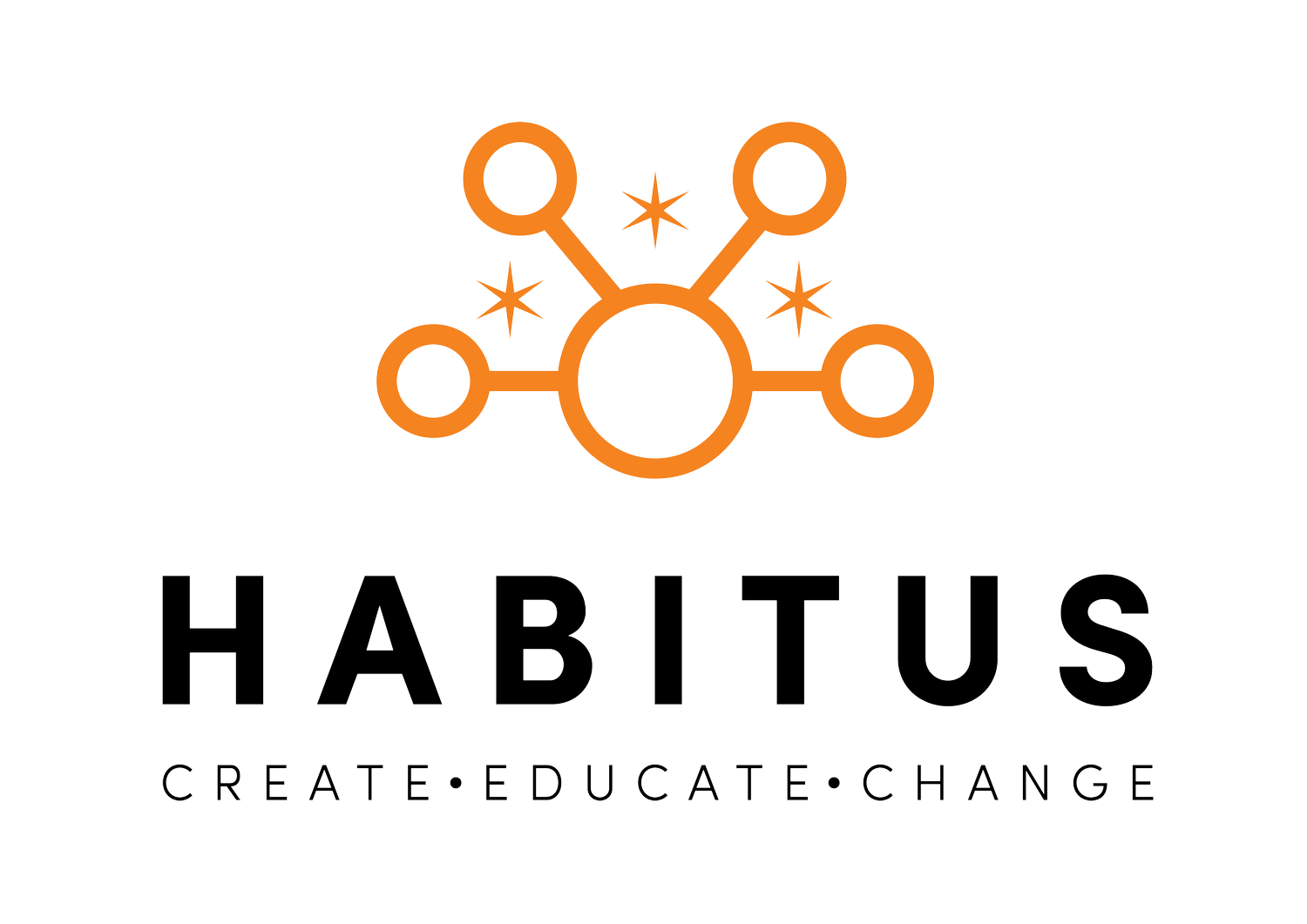Empowering Change: Secret Art of Facilitation
Introduction
Here at Habitus, we use anthropology, emotional intelligence and educational psychology to help you re-humanise your world. It’s taken us a few years (and degrees) to get here, but we think there’s something pretty special about sharing knowledge that helps people be better.
We know that humans are social creatures, and the organisations and communities benefit endlessly from opportunities to connect and to learn. We also know that there’s an art to teaching. We’ve worked with scores of brilliant presenters in our time, and we’re lucky enough to have some pretty fantastic people working for Habitus, so it’s no surprise that we were often being asked how people could learn to teach like us. The answer: we’ll show you.
The first Facilitation Training workshop we ran this year sold out in only weeks, bringing together people from all over the place and teaching them to harness their humanity, recognise each participant's unique potential, handle group dynamics and bring about positive change.
Course Overview
We’ve developed simple frameworks for understanding and managing group dynamics, and bring these to life in our training sessions to create experiential knowledge through real-world practice.
The Essence of Facilitation
Facilitation is more than the ability to teach, it's a mindset steeped in emotional intelligence, self-awareness and authenticity. Our first module looks at creating a safe space for participants to converse authentically as they explore emotional intelligence, self-awareness, bias and privilege, all while getting comfortable with the uncomfortable.
Nurturing the Group Environment
Everyone in the room brings something different to the table, and knowing how to encourage each person to get the best out the day starts with the facilitator, so understanding how to create a space where participants feel comfortable enough to express their ideas and initiate new perspectives is one of the cornerstones of the training.
Expanding the Facilitator's Toolkit
In order to connect with the needs of the room means that facilitators need to be dynamic. We don’t assume that every activity is going to work for every group, so we come armed with a suite of icebreakers, energisers and settlers, from storytelling and questions to games and artful questioning. We help you to build your toolkit with these same elements so that you can continue to work magic with future participants.
Why Choose Habitus?
Phenomenal Facilitators
We’re lucky enough to have worked with a whole host of brilliant facilitators, speakers, academics and researchers in our times and pride ourselves on extending this into the community. Want to get a better idea of some of the people behind Habitus? Check us out here.
Anthropology Means Answers:
Everyone has questions. Luckily, we also have answers. Habitus brings an authentic and multifaceted approach to understanding the world. From emotional intelligence and inclusive practices, to facilitation tips and tricks, our approach is backed by decades of research and years of life.
Experiential Learning:
We’re not here to sit behind a desk and take notes - Habitus training is based on practical learning with individual and group-based activities that mirror real-life situations.
Community and Support:
Beyond the training room, Habitus has built a Community of Practice which allows facilitators and past participants to meet up, reconnect and learn.
Conclusion
Our facilitator workshops include more than traditional teaching techniques. We bring an experiential learning process backed by anthropological principles to ensure that our future facilitators have the skills they need to adjust and adapt, helping to stay creative amidst the challenges of group dynamics.
At Habitus, we wholeheartedly believe that each person carries the ability to change the world within its core. If you want to jump on board, get your ticket to our next facilitator training, or click hereto learn more about our facilitator training programs.
